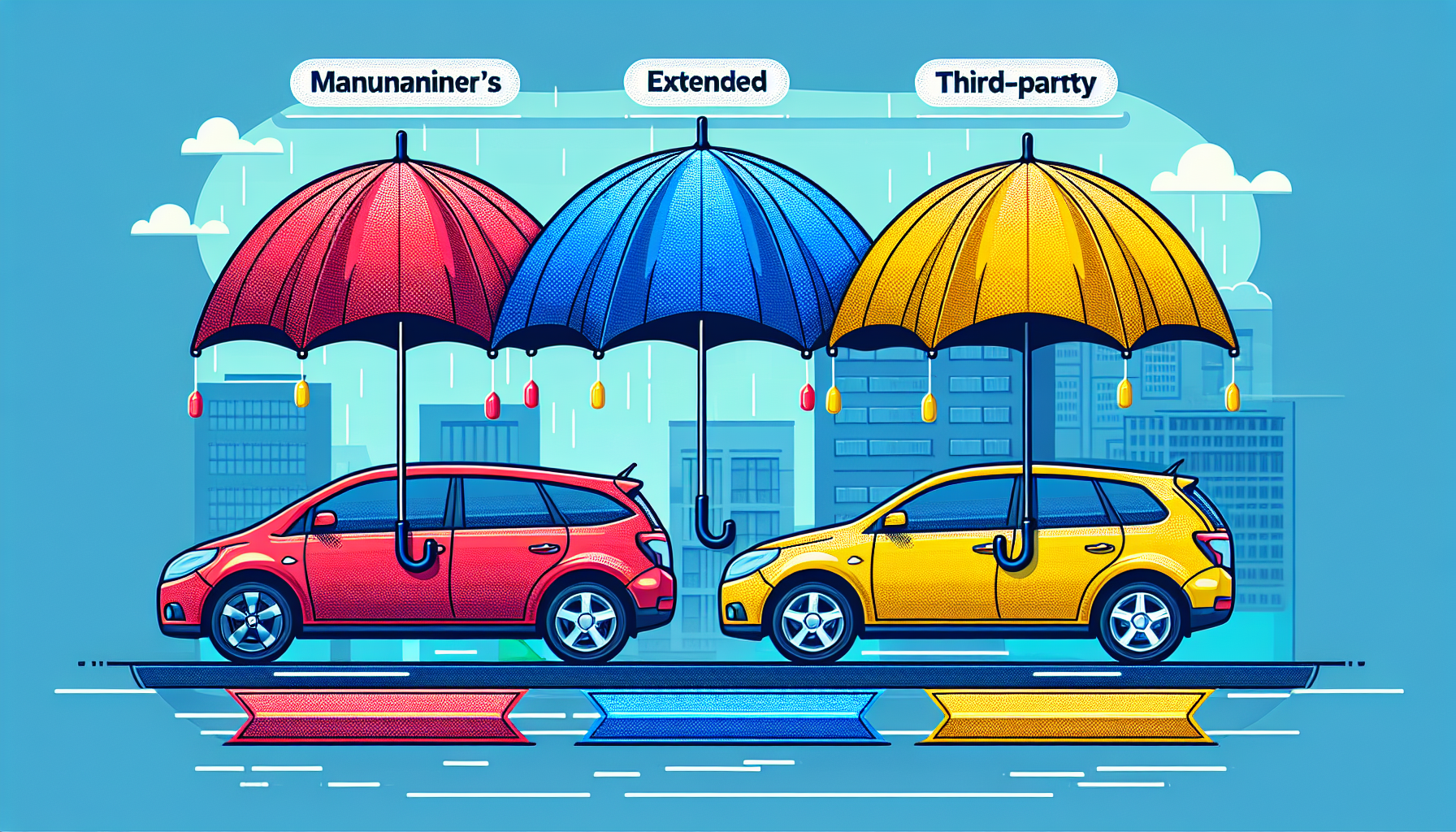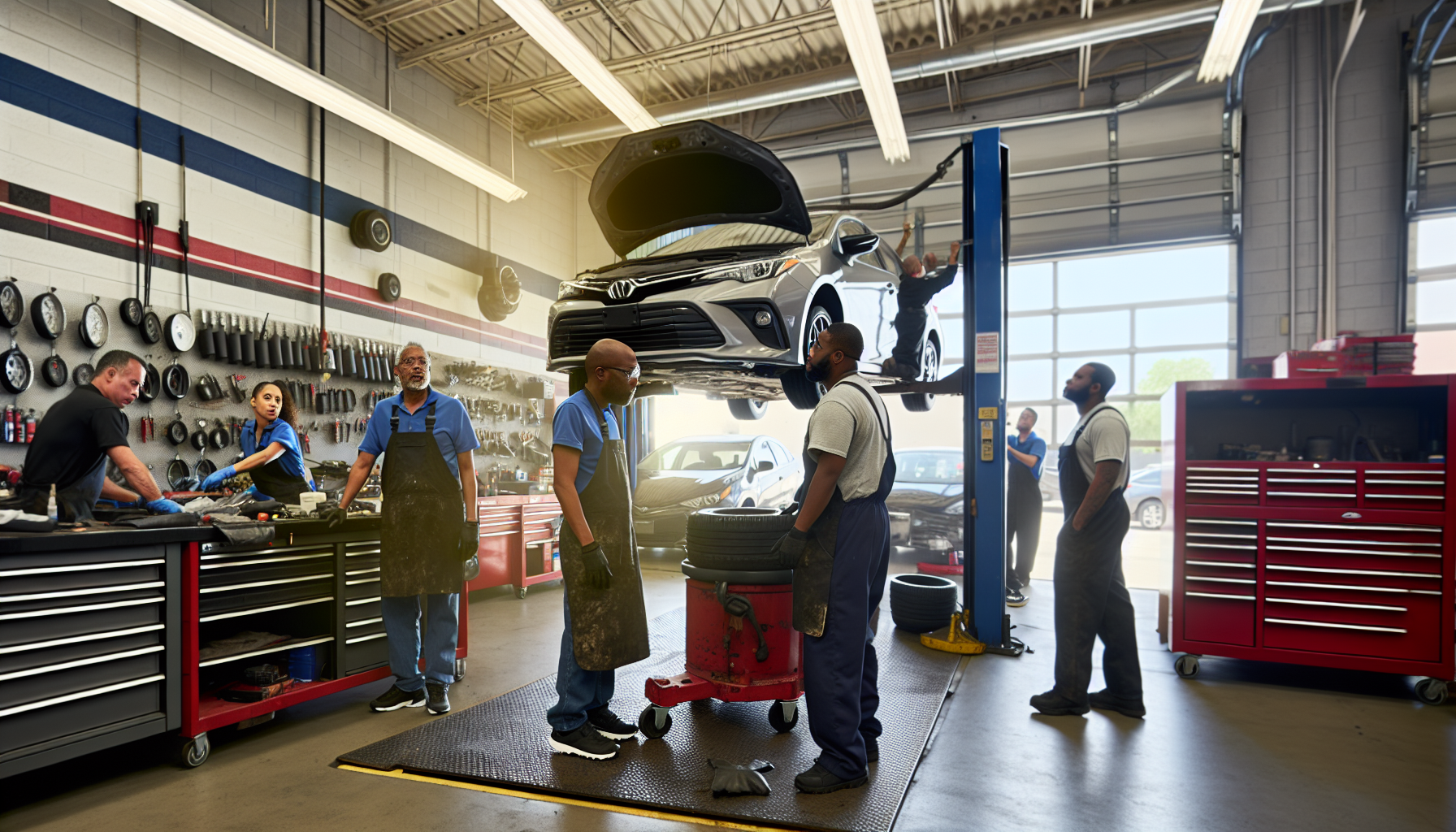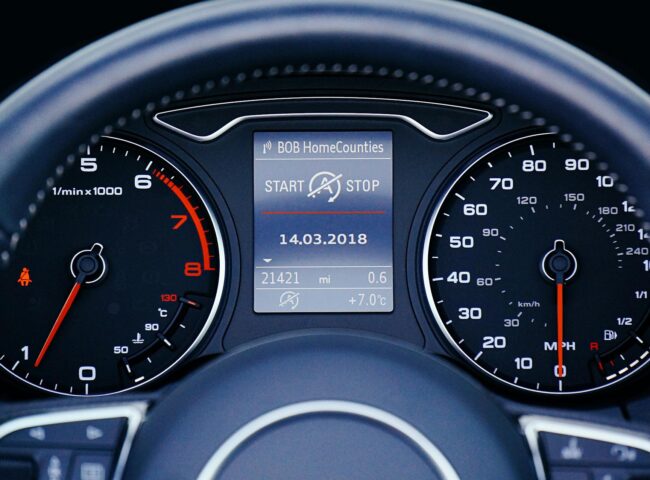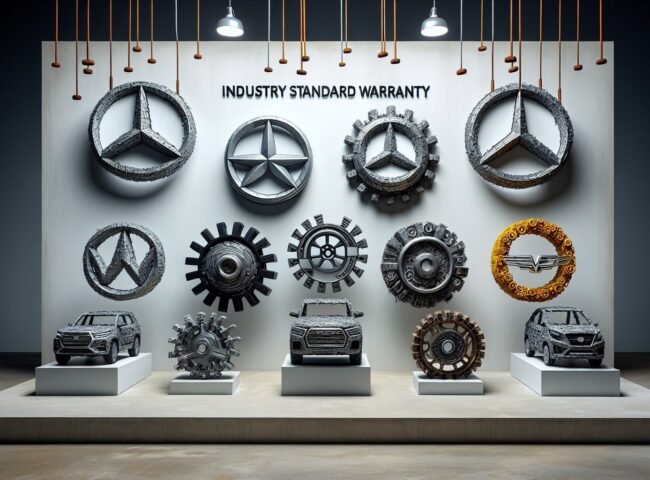Misplaced trust in auto warranty myths could be driving your decisions in the wrong direction. This article reveals the common misconceptions about auto warranties, from misconstrued coverage to wasted investment fears. Cut through the noise and grasp the essentials of warranty wisdom without the fluff, as we debunk the myths that might be misleading you.
Key Takeaways
- Extended warranties are not a waste of money and can offer significant savings on unexpected repair costs, contrary to the popular belief that they’re unnecessary.
- Auto warranty coverage varies greatly among different types with options like bumper-to-bumper, powertrain, and extended warranties, so it’s important to read the fine print and understand what each warranty covers.
- The Magnuson-Moss Warranty Act ensures that warranties are transparent and fair, safeguarding consumer rights such as requiring detailed and clear warranty information and protection even with aftermarket parts installed.
Debunking Auto Warranty Myths

Auto warranties, though misunderstood, play a vital role in car ownership for many car owners, including vehicle owners. Common misconceptions about them can influence your decisions. Let’s clarify these misconceptions and reveal the truth.
Myth #1: Extended Warranties Are a Waste of Money
Contrary to popular belief, extended warranties are not a waste of money. In fact, they can save you from unexpected repair costs, especially for used cars that no longer have a manufacturer’s warranty or cars with a known history of repair issues. They offer peace of mind, much like insurance policies.
Myth #2: All Car Warranties Offer the Same Coverage
Another common myth is that most car warranties offer the same coverage. In reality, warranty coverage varies greatly, with options like:
- Bumper-to-bumper warranties covering all components of the vehicle
- Powertrain warranties covering the engine, transmission, and drivetrain
- Extended warranties offering additional coverage beyond the standard warranty
Always read the fine print and understand the differences before choosing a warranty.
Myth #3: New Cars Don’t Require an Extended Warranty
Many people believe that new cars don’t require an extended warranty, but this isn’t always the case. An extended warranty can provide additional protection beyond the manufacturer’s limited warranty, depending on your preferences and financial situation.
Understanding the Different Types of Auto Warranties

Having clarified some common myths, it’s time to explore the various types of auto warranties available. This knowledge will guide you in selecting the most suitable warranty for your vehicle.
Manufacturer’s Warranty
A manufacturer’s car warranty typically includes:
- Bumper-to-bumper coverage that encompasses most parts of the vehicle
- Lasts for three years or 36,000 miles, whichever comes first
- Some even offer extended coverage for the powertrain.
Always research and compare new car warranty options when purchasing a new vehicle, considering the repair shop network covered by the warranty.
Extended Warranty
Extended warranties, also known as extended auto warranties or vehicle service contracts, provide coverage for certain vehicle repairs once the manufacturer’s warranty expires. Here are some key points to know about extended warranties:
- They typically do not cover routine maintenance tasks
- They may include a deductible
- They apply to both new and used cars
- There are usually waiting periods before they come into effect
Third-Party Warranties
Third-party warranties offer flexibility with multiple coverage options. However, reliability is crucial when selecting a third-party warranty. Be sure to research the company’s history, including litigation and consumer complaints, to assess their legitimacy and reliability.
The Importance of Regular Maintenance and Record Keeping

Maintaining warranty coverage necessitates regular maintenance and diligent record keeping. If these tasks are neglected or the recommended schedule is not followed, you risk voiding your warranty coverage.
Routine Maintenance
Routine maintenance includes tasks such as auto repair:
- oil and filter changes
- tire rotations
- brake inspections
- replacing worn parts
Skipping these services can lead to warranty disputes, so it’s essential to stick to a strict maintenance routine.
Record Keeping
Detailed records of maintenance and repairs are necessary to prove proper vehicle maintenance and warranty compliance. Manufacturers may deny warranty claims if there is no evidence of routine maintenance, so always keep your records handy.
How to Choose the Right Auto Warranty for Your Vehicle

The selection of an appropriate auto warranty entails an assessment of your needs, comparison of warranty providers, and careful reading of the fine print. This approach will aid in finding a warranty that is attuned to your needs and circumstances.
Assessing Your Needs
Consider the following factors when deciding whether or not to purchase an extended warranty for your vehicle:
- Your financial capacity to handle unexpected repairs
- The specific characteristics of your vehicle
- The expected duration of vehicle ownership
- The likely repair scenarios
Analyzing these factors will help you ascertain the necessity of an extended warranty.
Comparing Warranty Providers
When comparing different warranty providers, consider the following:
- Gather quotes
- Understand where you can get service
- Know the payment process for out of pocket repairs
- Check customer reviews
- Consider any additional perks such as roadside assistance or rental car reimbursement.
Reading the Fine Print
Lastly, always read the fine print. Understand all restrictions, limitations, and potential hidden fees. Consult with the dealer or warranty provider and ask questions if anything is unclear.
The Magnuson-Moss Warranty Act: Know Your Rights

The Magnuson-Moss Warranty Act is a federal law that ensures transparency and fairness for consumers by requiring clear and detailed warranty information.
Let’s examine what this implies for you.
Warranty Act Overview
The Magnuson-Moss Warranty Act was enacted to ensure transparency and fairness for consumers. If a business offers a written warranty, it must be in full compliance with this Act. All written warranties must be clear and detailed.
Consumer Rights
Under the Magnuson-Moss Warranty Act, you have the right to a warranty that is presented in a clear and comprehensible manner. Additionally, if your vehicle is fitted with aftermarket parts, warranty providers must prove that these parts caused the need for repairs before they can reject warranty coverage.
Common Exclusions and Limitations in Auto Warranties
Bear in mind that auto warranties often entail specific exclusions and limitations. Comprehending what is not covered can spare you from unforeseen expenses and disputes.
Wear and Tear Items
Items like tires, wipers, and brake pads are typically not covered by car warranties as they are expected to be replaced regularly. Always check what wear and tear items are covered by your warranty.
Unauthorized Modifications
Unauthorized modifications that cause damage to the vehicle can lead to a voided warranty or coverage denial. Be aware of what modifications can affect your warranty coverage.
Summary
Summarize the key points discussed in the blog post and end with an inspiring phrase that encourages the reader to take action and make informed decisions about their auto warranty.
Frequently Asked Questions
What are 5 common acts that void your vehicle’s warranty?
Misusing the vehicle, using aftermarket parts or modifications, neglect, use of dirty or improper fluids, and failing to service the car at regular intervals can void your vehicle’s warranty. Make sure to read your warranty coverage booklet and keep all service records and receipts to avoid voiding your warranty.
Why do dealerships push warranties?
Dealerships push warranties because they want to secure your loyalty for service and repair. They profit more from aftermarket sales and aim to become your main source for an extended car warranty.
What are two items typically not covered in a car warranty?
Car warranties typically do not cover items that wear out from intended use, such as tires, brake pads, wiper blades, and light bulbs. This includes wear and tear on exterior paint and headlights as well.
Is the car warranty ever a good idea?
An extended car warranty can provide peace of mind and protection from costly repairs, especially for used cars, high mileage vehicles, or unreliable models. However, it may not be the best choice for everyone due to high costs and limited coverage.





